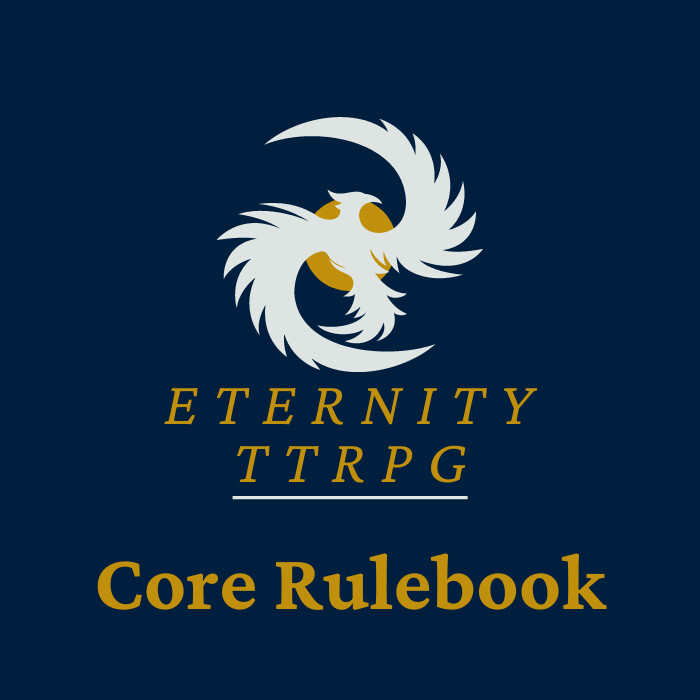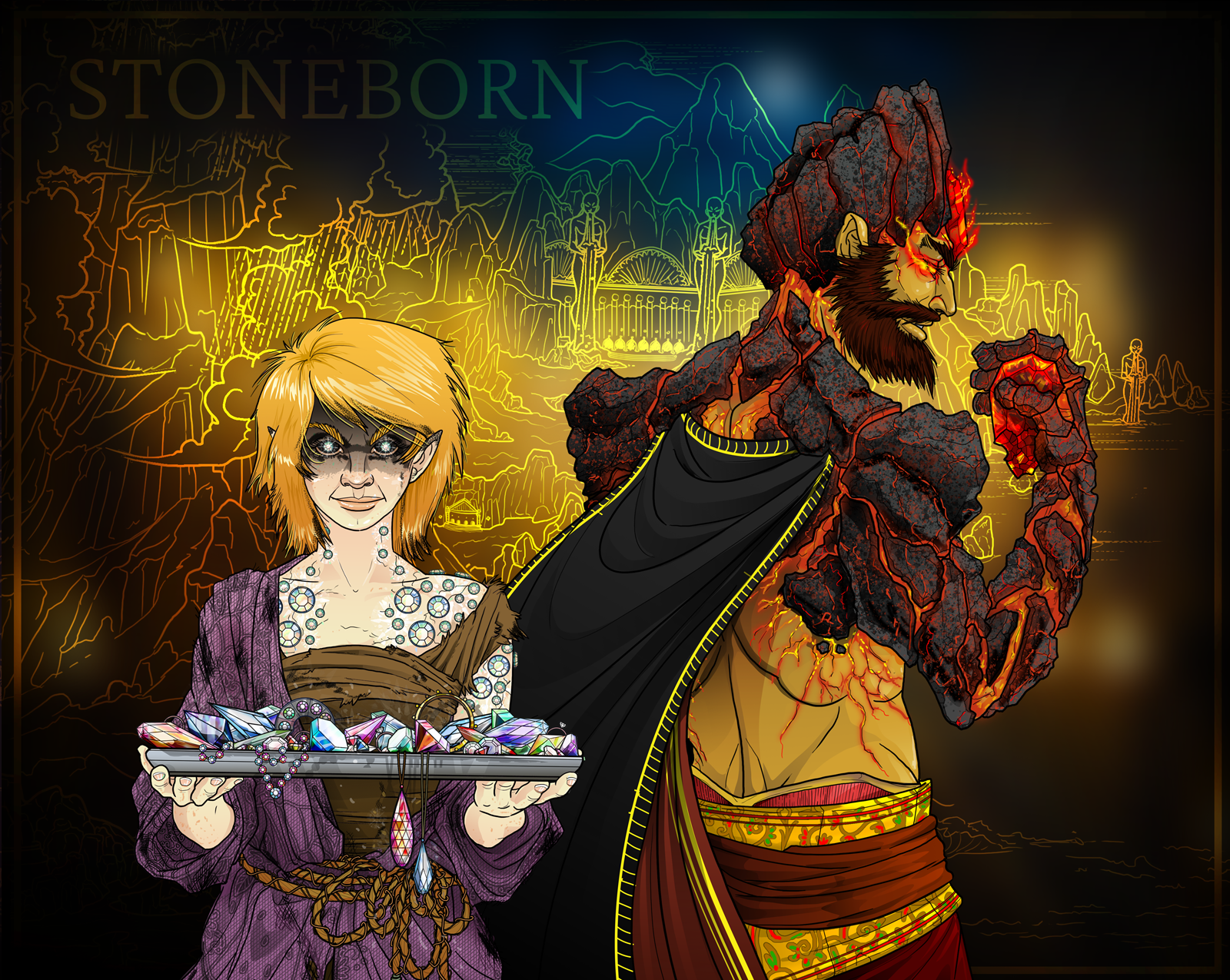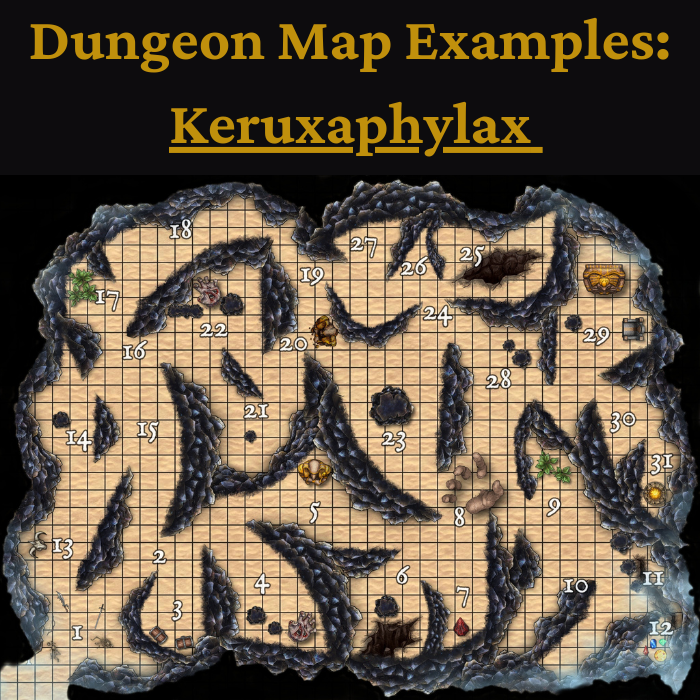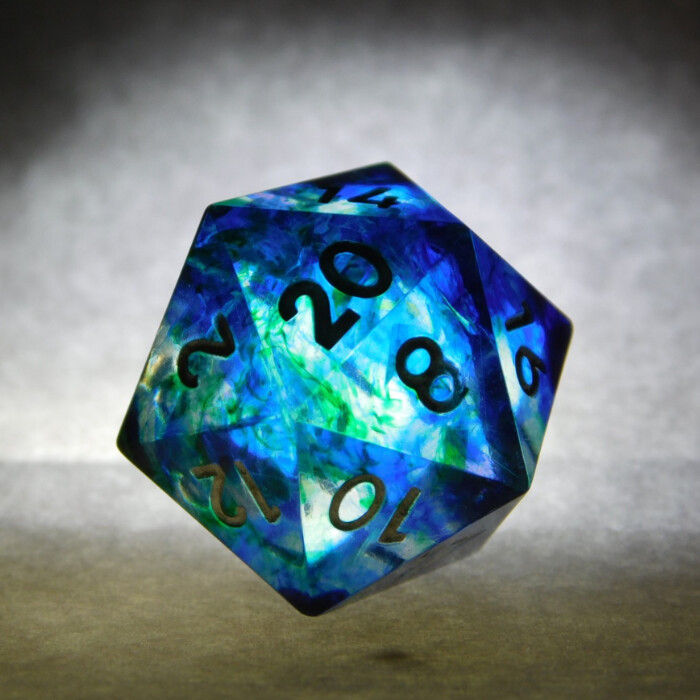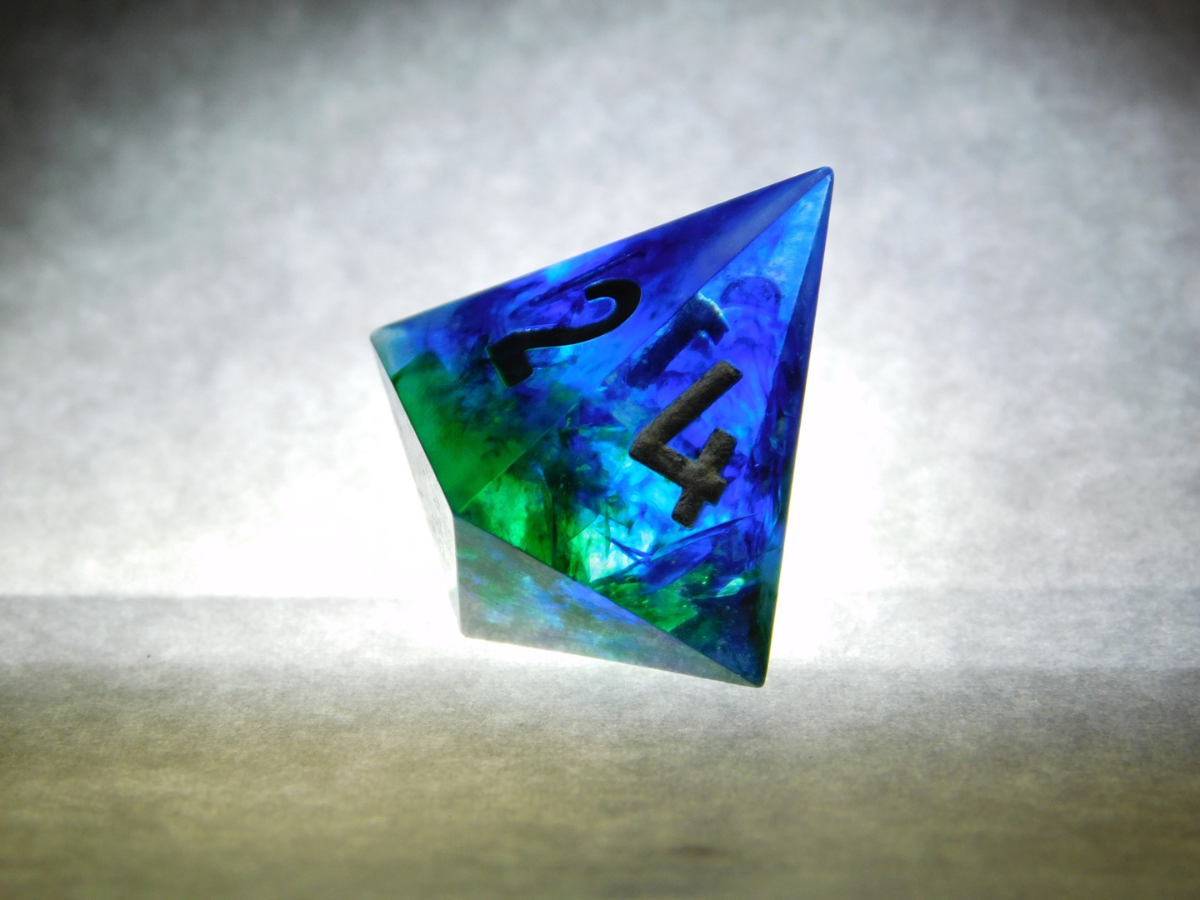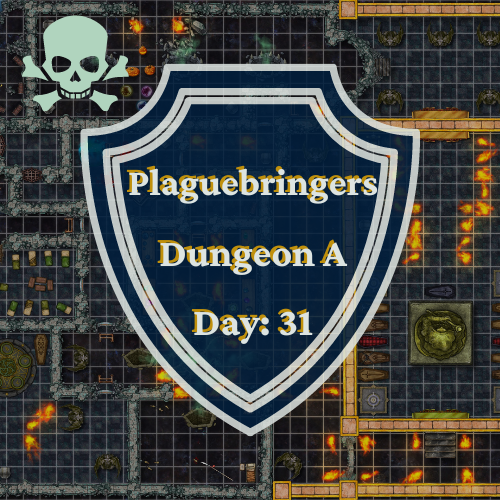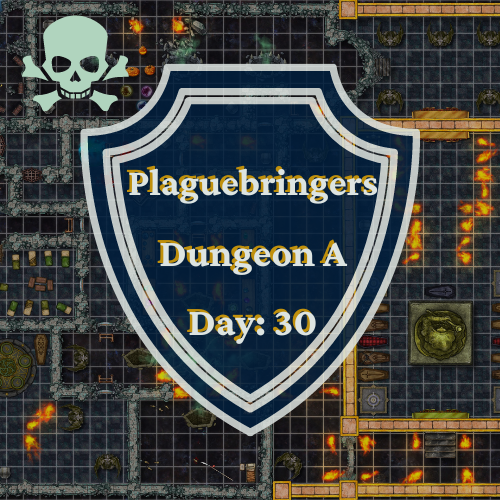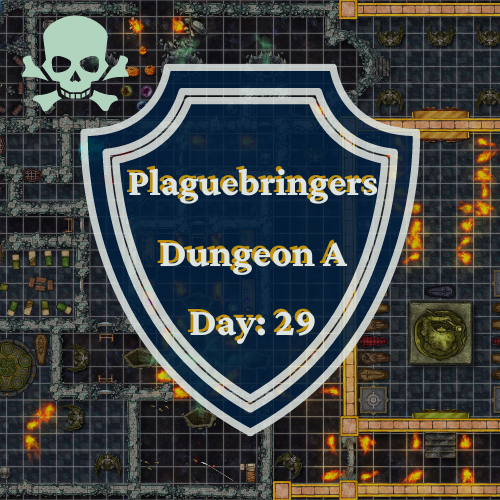Silence 5e
Silence 5e (that is, the Silence spell in D&D 5th edition) is one of D&D’s most iconic spells. If you can believe it, Silence has been around even since D&D’s 1st edition, surviving nearly 50-years of game updates.
Silence is the type of spell that other TTRPG and video games have made wide use of, and it’s become synonymous in most games with the “inability to cast magic.” However, when it comes to D&D, the applications of Silence are actually much broader.
Overall, Silence 5e cuts off sound from the target. That is the spell’s only effect. Although, the implications and uses for that effect are numerous.
Silence 5e is pretty straightforward, but despite the simplicity of what it does, there is still some confusion about the ins and outs of Silence. I’m here to silence the confusion surrounding the Silence 5e spell, and help you get the most from it.
Learn all about the bits and pieces of this oldie-but-goodie spell for rangers, clerics, and bards. Also, stick around to the end to find out how you can best use Silence 5e for your next D&D game, and how Silence also works in the Eternity TTRPG game system.
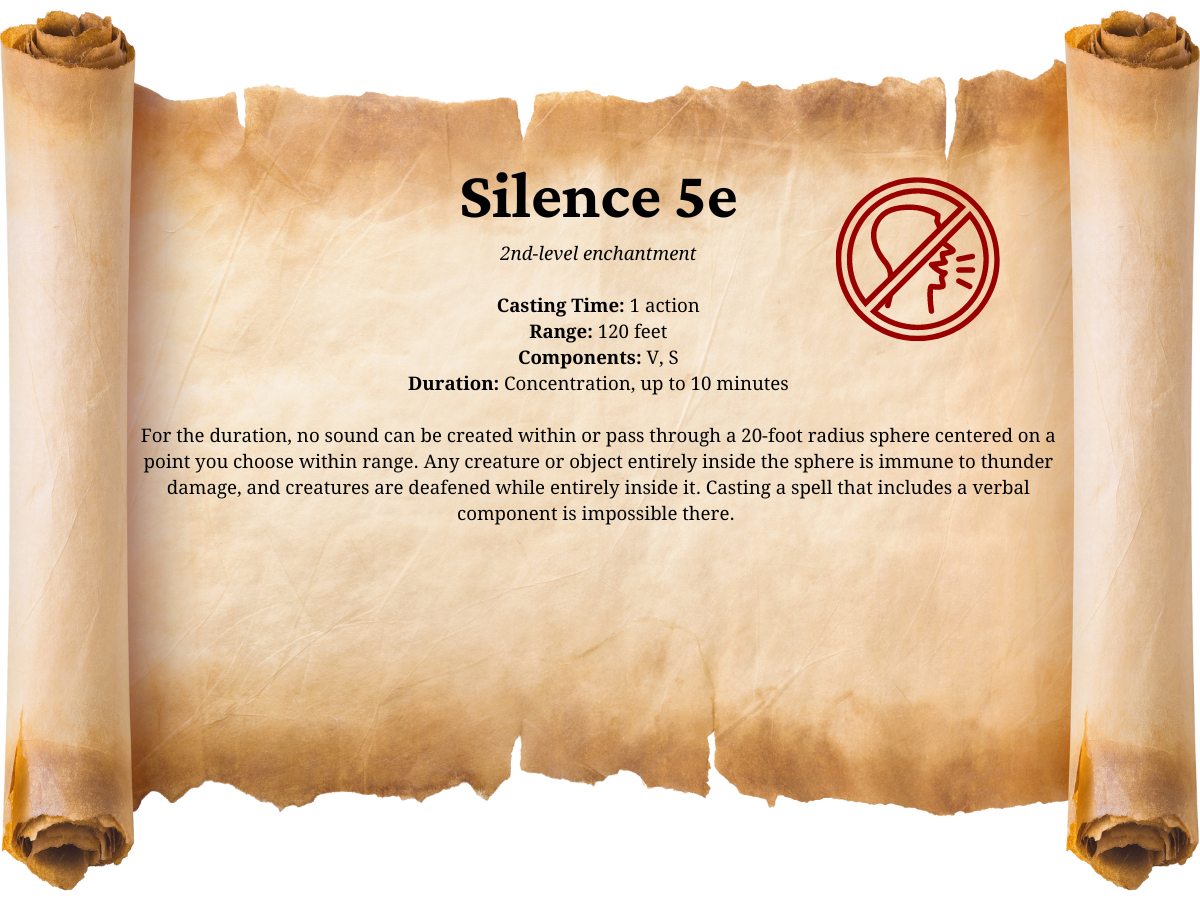
Silence 5e Spell Effect
2nd-level illusion (ritual)
Casting Time: 1 action
Range: 120 feet
Components: V, S
Duration: Concentration, up to 10 minutes
For the duration, no sound can be created within or pass through a 20-foot radius sphere centered on a point you choose within range. Any creature or object entirely inside the sphere is immune to thunder damage, and creatures are deafened while entirely inside it. Casting a spell that includes a verbal component is impossible there.
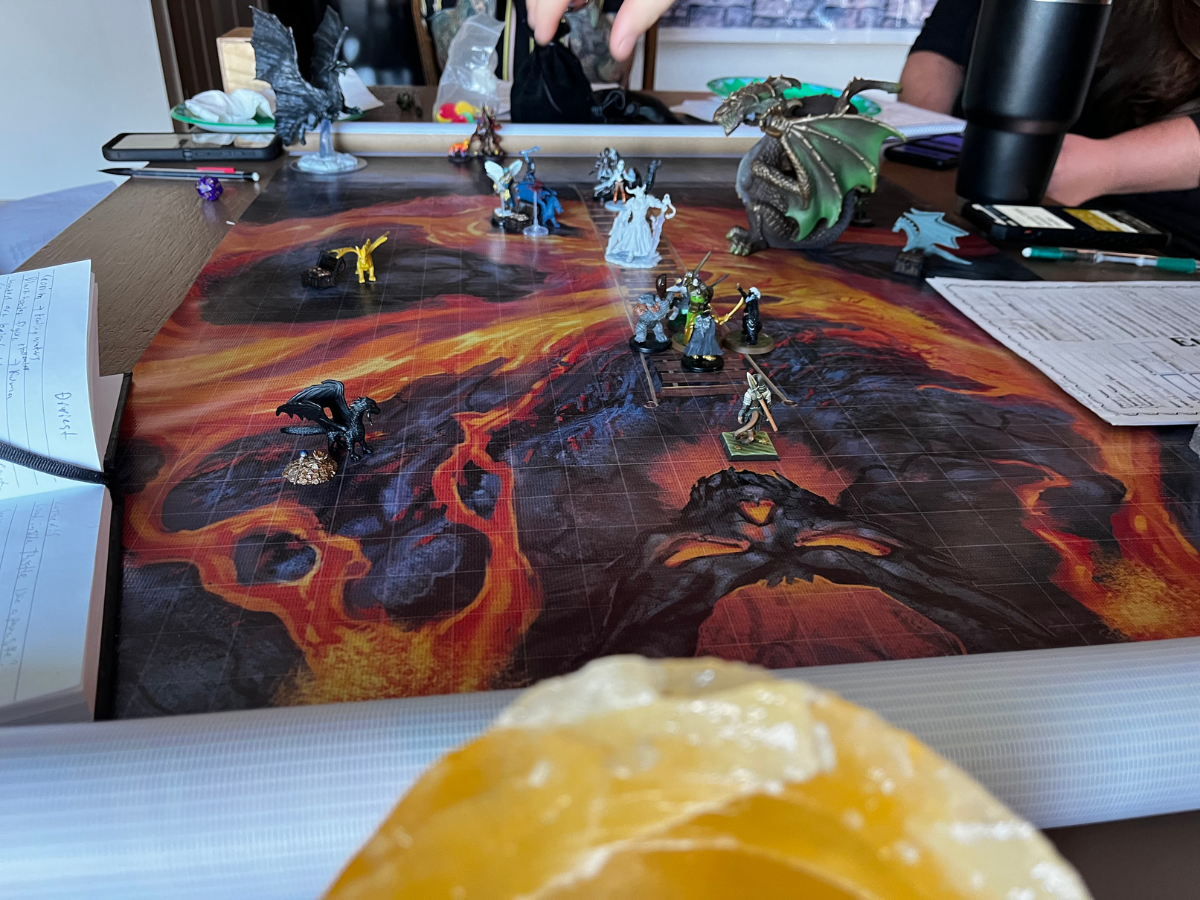
What Exactly is Silence 5e?
Silence 5e is a level 2 illusion spell. As an illusion spell, Silence distorts a character’s sense of sound. When cast upon them, Silence prevents affected characters from hearing and speaking.
Basically, characters under the spell won’t be able to perform ability checks or cast spells (and as you’ll soon see, much more). Talk about handy!
How Does Silence Work in D&D 5e?
Characters who are capable of casting Silence can cast the spell on either a 20-foot area, or on a person or object, with a 20-foot area around them. Silence 5e creates a sphere that mutes all sound.
Casters of Silence can deploy the spell 120-feet away from where they are. The spell remains in effect for 10-minutes. During this 10-minute window, your characters can capitalize on your enemy’s inability to cast spells, detect intruders by noise, communicate among themselves, and more.
What 5e Classes Can Cast Silence?
In the D&D 5e, three core classes and three additional subclasses have Silence at their disposal. The core classes are bards, clerics, and rangers. The subclasses are Druids from the Circle of the Land, Warlocks belonging to The Fathomless, and Warlocks in The Undying.
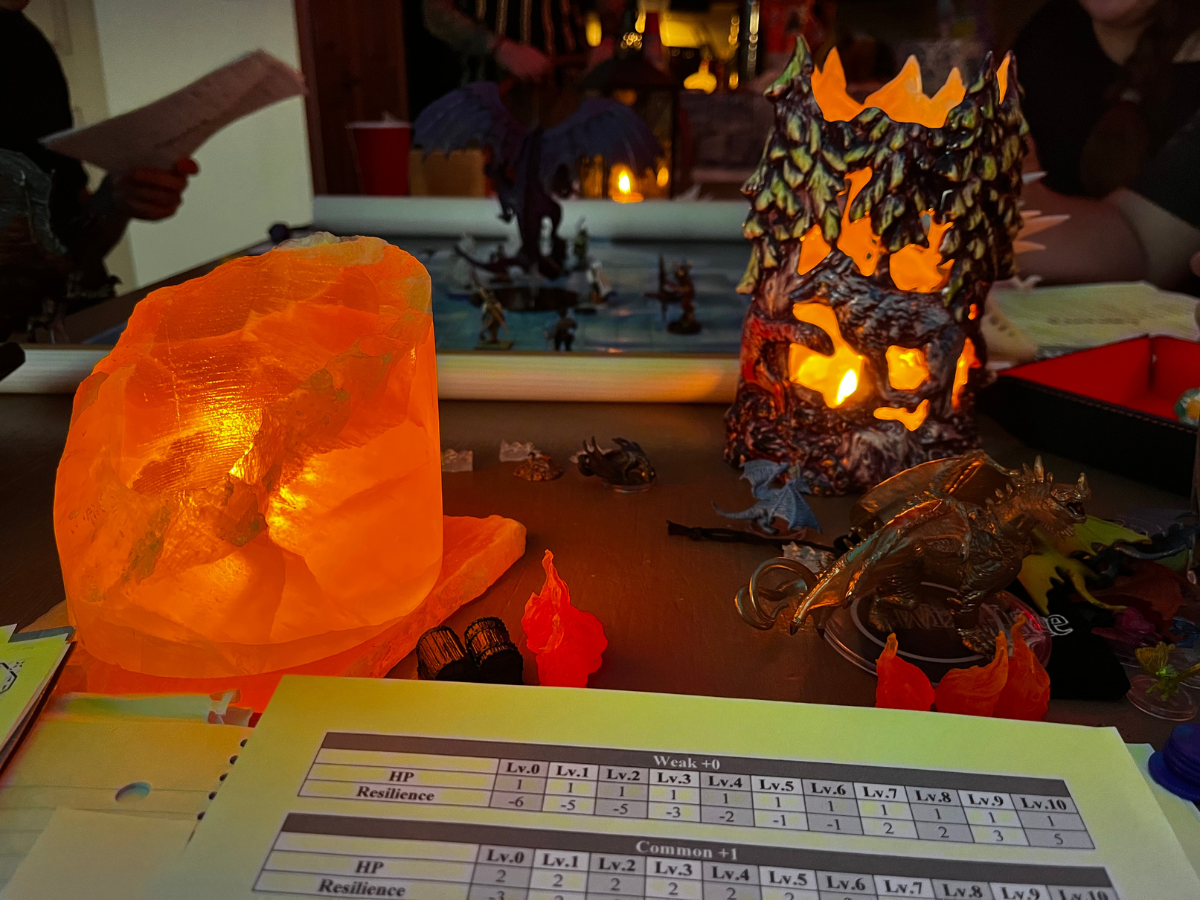
I always like to play up the ambience for my tabletop games. Especially if you're building a session around a spell like Silence, it can be cool to "show" your players the mood you're describing, rather than just telling.
Strategies for using Silence in Your D&D Game
With Silence at your disposal, you can dominate the game in several ways. We’ll start with the spell’s most common uses:
Shut up Spellcasters
With Silence in effect, spellcasting characters within the spell’s 20-foot sphere aren’t able to cast spells. Sure, not all spells in D&D require a verbal component, but most do — more than 96% of all spells, to be exact.
So, Silence is incredibly effective for shutting down enemy casters, and should always be on-hand for enemies of that type.
Going Espionage on the Enemy
Silence isn’t just effective for shutting your enemies down. You can also use it on your own party, especially in scenarios where stealth is of the essence.
Cast Silence in tunnels, lairs, or behind enemy lines, to prevent detection. You can even use it on your party if you’re firing something that makes a loud bang — like a heavy cannon perhaps.
Another crafty way to use Silence 5e is to cast it on a tower where an enemy can sound the alarm. Even if the guard detects you, the alarm won’t be audible, with the Silence spell in effect. Even with an alarm frantically ringing, it’ll be as though you weren’t there.
Eternity TTRPG Top Sellers
Stifling Your Opponent’s Thunder
As mentioned earlier, the 20-foot sphere created by Silence deafens and mutes people inside of it. However, it also protects the targeted area from spells — particularly spells that inflict thunder damage to your party.
Since Silence removes all sound from its target area, it offers protection against sound-based attacks (thunder damage). Thunder damage constitutes anything from explosions to shockwaves, and many enemies are capable of inflicting such attacks.
If you’re looking to protect your party’s characters from thunder for at least the next ten minutes, cast Silence on your party’s location. It’s literally the perfect counter to any foe who deals heavy thunder damage.
If you cast Silence on your own party though, just keep in mind that you’ll be preventing your party from hearing... so, any enemy who may be able to sneak up on you will have an easier time.
Keep the Quiet Coming with Ritual Casting
Most players forget that it’s possible to cast Silence ritually in D&D 5e. With ritual casting, you don’t have to expend spell slots. The characters that can cast Silence 5e ritually are clerics, bards, and rangers.
When planning for your game, keep in mind that warlocks and druids cannot cast Silence 5e ritually. Instead, these classes still need to use spell slots.
Playing Ventriloquist by Pairing Silence 5e With Magic Mouth (My Personal Favorite)
You might need your DM’s permission for this, but one of the rarer ways to use Silence is to pair it with another illusionary spell like Magic Mouth.
First, cast Silence on the area of your choosing. From here, the enemy’s characters within the 20-foot sphere won’t be able to speak for ten minutes.
Once you’ve muted the characters with Silence, cast Magic Mouth. After doing this, you’ll be able to put words in the character’s mouth (so to speak), creating the illusion that the character is saying something.
As you can imagine, the resulting illusion opens up a ton of tactical opportunities that can deceive the enemy.
Obviously, if Silence prevents all sound, then it’s suspect to allow Magic Mouth to do its... well magic. But, if you DM is feeling generous, this combo-usage is incredibly fun.
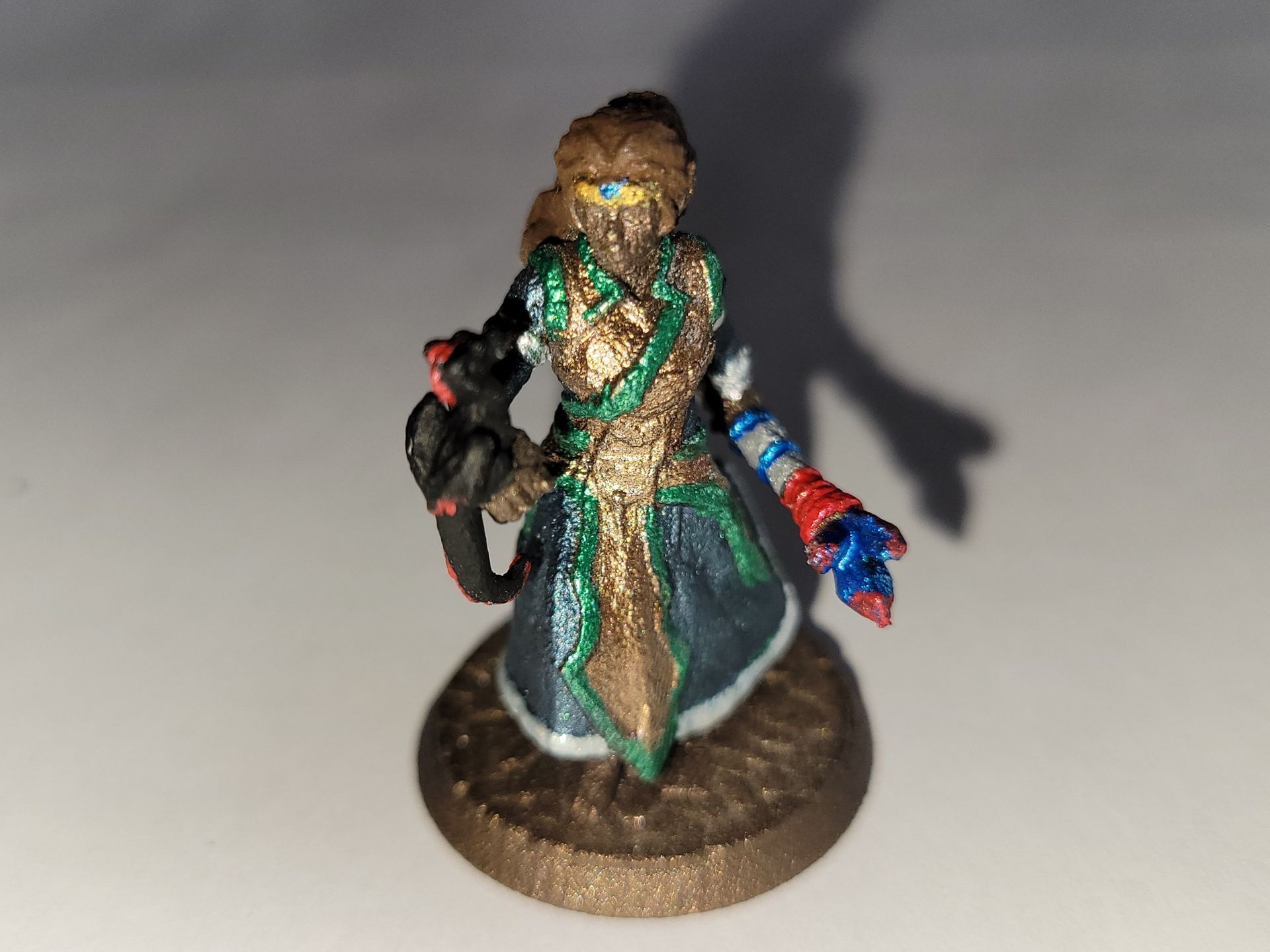
Silence in D&D 5e vs. Eternity TTRPG
In D&D 5e, Silence mutes all sound within its target area, preventing spell casting, protecting against thunder damage, and preventing the usage of sound-based skills. In the Eternity TTRPG Game System, the use of Silence is narrower, though its varieties are greater.
As with most video game RPGs, Silence in Eternity TTRPG prevents spell casting, making it absolutely deadly to deal with for casting classes. Though Silence has no utility in Eternity TTRPG beyond shutting down spell casters, its uses are varied and extremely valuable in any battle.
What Classes in Eternity TTRPG can Cast Silence?
Cryomancer (Core Rulebook) and Witch Hunter (Classes Expansion) are the only classes that receive Silence as a core class spell. However, Alchemist, Dread Priest, and Druid all have specialization/ critical options that allow them to obtain Silence.
In Eternity TTRPG, the ways that Silence functions with each class capable of casting it vary greatly:
Cryomancer – Core Class Spell
Howling Winds (Magic): 4Range, Faith vs. Resilience, Silence for 3turns.
(Double-Hit): Silence for an additional 3turns.
- (Frost Knight) 8Range. You also have 8Range when casting this spell, for Battle Duration.
- (Spells of Everwinter) Up to 3 enemies in 4Range. *Double-Hit can only apply to one target hit with this critical.
- (Elemental Ice) +7Faith vs. Resilience, Silence for 4turns. This critical effect cannot Double-Hit or give a Block.
Witch Hunter – Core Class Spell
Exorcism (Magic): weapon Range, Strike Bonus vs. Resilience or 4Range, Faith vs. Resilience, Silences for 3turns.
(Double-Hit): Silences for an additional 3turns.
- (Curse Ender) Even if this spell misses, the next time the target tries to cast magic, you Instantly attack them again with this spell to interrupt them. Weapon Range, +3Strike Bonus vs. Resilience or 4Range, +3Faith vs. Resilience, Silences for 3turns. If you interrupt them with Silence, they may still take a different action.
- (Hunter of Nightmares) 8Range. You also have 8Range when casting this spell, for Battle Duration.
- (Avenger) Weapon Range, +7Strike Bonus vs. Resilience or 4Range, +7Faith vs. Resilience, Silences for 4turns. This critical cannot Double-Hit or give a Block.
Alchemist – Specialization/ Critical Option
Homunculus (Magic): you summon a demi-human with 1HP and stats otherwise the same as the alchemist’s, except with -5Resilience, -5Dodge, and -5Will. On the “Homunculus’” turn, choose an enemy in 4Range, and roll d20. If you roll 18-20, “Homunculus” attacks, automatically causing the next attack that deals damage to the target to deal an additional +1damage. “Homunculus” may also use the “Charge” synergy (you may use Faith vs. Resilience to do so, if you so choose), but doing so reduces the alchemist’s Wisdom (if applicable). “Homunculus” acts on the same turn as the alchemist.
“Homunculus” always has the same
stats as the alchemist, whether from level increases, buffs, or debuffs. If the alchemist
receives a debuff, it also affects the “Homunculus.” However, “Homunculus” is immune to both Wisdom damage and debuffs that cause recurring damage.
It takes 15minutes to summon a
“Homunculus,” so a new “Homunculus” cannot be created during combat. You can only have one “Homunculus” active at a time. You continually maintain “Homunculus” for 3Inspiration.
- (Decomposition) If “Homunculus” hits, +7Strike Bonus vs. Resilience or, +7Faith vs. Resilience, the target is also Silenced for 3turns. This critical effect cannot Double-Hit or give a Block. Your “Homunculus” also has 2HP. You can instead choose to continually maintain this critical for 3Intelligence (plus the base 3Inspiration, and 0Wisdom).
Dread Priest – Specialization/ Critical Option
Fatal Prayer (Magic): attack yourself with your Faith vs. your Will. If this spell hits, choose an enemy in 4Range, +7Faith vs. Will, deals 1damage to them (instead of you). If this spell misses, then nothing happens. “Fatal Prayer” cannot Double-Hit or give a Block. Battle Recharge.
- (Prayers of the Abyss) Even if this spell misses, Faith vs. Resilience, Silence for 3turns.
Druid – Specialization/ Critical Option
Wind Tunnel (Magic): weapon Range, -3Strike Bonus vs. Dodge or 4Range, -3Faith vs. Will, throws the target up to your Speed value +2 in any direction.
(Double-Hit): throws the target up to an additional (your) Speed value +2 in any direction.
- (Nature’s Healing) If this spell hits, the target is also Silenced for 4turns.
Strategies for using Silence in Eternity TTRPG
As a powerful debuff against spell casters, Silence allows you to prevent magical healing, zero out enemy spell damage, and even interrupt ongoing magical buffs or debuffs.
Prevent Magical Healing
Unlike in most games, healing in Eternity TTRPG “Fatigues” targets, lowering their overall defenses. For this reason, healing classes do not provide uninterrupted healing. Instead, they tend to reserve healing for when a character’s getting low so that they don’t have to contend with lowered defenses throughout the entire fight.
So, if you Silence an enemy healer as their teammate drops into low health, you virtually guarantee the kill. It’s especially useful to Silence healers when you’re about to kill a very powerful enemy, who might otherwise be a big problem.
On the opposite end, having your own healer's magic shut down is a good way to have a TPK, so be careful when facing enemies who can Silence.
Zero Out Spell Damage
In the reverse situation, it’s an absolute life-saver to Silence an enemy spell caster when a teammate drops to low HP. Keeping an ally from falling to 0HP during a close fight, giving them even another turn or two of dealing damage, can literally turn a battle around.
I also often start battles by trying to Silence enemy spell casters. Since most casters don’t have high Resilience (and are easier to hit with status effects), you can ruin your enemy’s plans before the fight even truly begins.
Interrupt Magical Buffs or Debuffs
Ongoing magical effects can be “Interrupted” with Silence. This means that any particularly powerful buffs or debuffs, often keystones for an enemy’s strategy in battle, can be temporarily suppressed with Silence.
Silence normally shouldn’t be cast with the exclusive end in mind of interrupting effects, as they only delaying benefits. However, when fighting enemy casting classes that rely heavily on buffs or debuffs (classes like the sage or revenant/ witch), the value you gain from Silence nearly doubles.
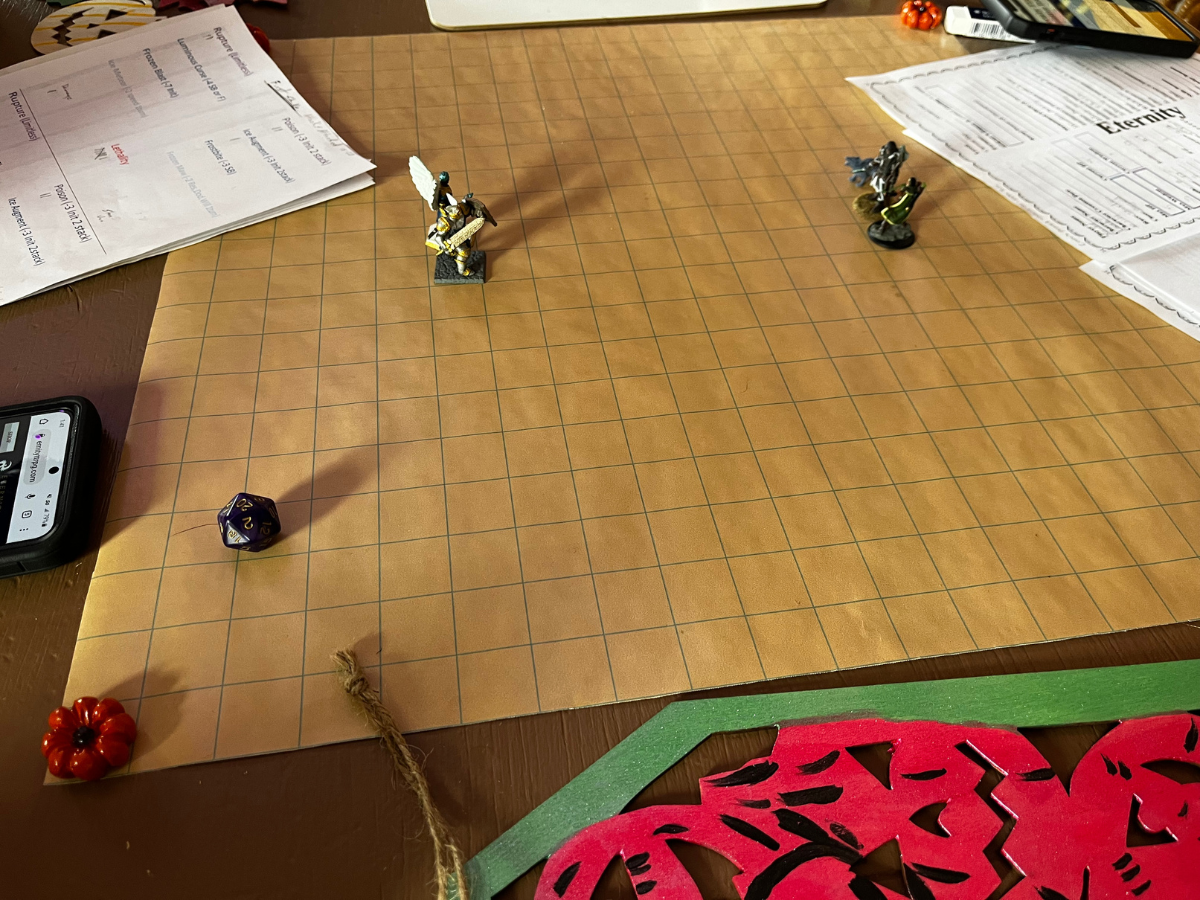
Counters to Silence in Eternity TTRPG
Of course, Silence is not without its counters. Here are a number of possible ways to deal with Silence if you’re on the receiving end of things. Or, if you simply want to think two steps ahead, here are some of the ways that characters you Silence might respond:
Removing Silence
Many classes have a version of “Dispel,” which can be used to remove negative status effects. Since Dispel is itself a magic spell, in most cases, a Silenced character can’t Dispel effects from themselves. However, allies can Dispel for each other. And Silenced characters can use the “Essence of Magic” item on themselves to achieve the same effect.
Greater Dispel (Magic): 4Range, Faith vs. Resilience, removes all stacks of one ongoing Magic, maintained effect, or status effect from the target (excluding summons), at your choice. Or alternatively, 4Range, +5Faith vs. Resilience, deals 1damage to a summoned unit.
This spell is cast on any target you’d
like, but the roll is made against the character who cast the spell or used the ability
you are attempting to remove, unless the target is a summon.
(Double-Hit): removes all stacks of 2
ongoing Magic or maintained effects (excluding summons). Or alternatively, if cast
at a summon, deals an additional 1damage to the summoned unit.
Essence of Magic (3 Uses): 6Range, automatically removes the “Silence” effect. A target can only benefit from this item once per battle.
You can alternatively use this item at
6Range, Strike Bonus vs. Resilience, or Faith vs. Resilience, Silences the target for
3turns. This item cannot Double-Hit or give a Block.
Casting through Silence
Certain spells have specialization/ critical options that allow them to be cast even while the character is Silenced. Some items also allow for a Silenced character to continue casting magic, although often at reduced effectiveness.
Blessed Light (Magic): 4Range, the target heals +1HP. This spell allows the target to heal 1HP above their normal max HP. This effect also Fatigues the target, giving -3Resilience, -3Dodge, and -3Will for 1Day Duration (can stack without limit).
- (Secrets of the Ancient Tomes) You can still cast this spell while Dazed, Locked, or Silenced. Also, roll d20. If you roll 11-20, you also remove that effect from yourself.
Arcane Staff: 2handed. 5Range, Faith vs. Will, deals 1damage. You gain +1Range when casting all spells that normally have 4Range or more. You can still attack using this weapon even while Silenced, but with -6Faith (though you still cannot cast spells). You cannot use the “Charge” synergy while wielding this weapon.
Making Best Use of Items
If no other options are available for a Silenced character, it’s always valuable to use the time while Silenced for healing, or other combat-boosting items. Silence effects can sometimes last quite a while (3 or even 4turns), so keeping consumable on-hand is a life-saver for any spell caster.
Kingstone (5 Uses): 4Range, roll d20. If you roll 5-20, heal +1HP. Healing from this item also Fatigues the target, giving -3Resilience, -3Dodge, and -3Will for 1Day Duration (can stack without limit). If you fail to hit with this item, it does not count as a “use.”
Powder of Bones (5 Uses): 4Range, you raise 3 undead, each with 1HP and stats otherwise the same as yours, except with -5Resilience, -5Dodge, and -5Will. On the undead’s turn, choose an enemy in 1Range, and roll d20. If you roll 20, the undead attacks, automatically dealing 1damage. Undead act on the same turn as you.
Undead raised from this spell do not
“take up spaces” (meaning other characters can occupy or move through spaces
they’re in). Undead take damage from healing spells, and heal from taking shadow damage.
Undead always have the same stats as
you, whether from level increases, buffs, or debuffs. If you receive a debuff, it also
affects the undead. However, undead are immune to both Wisdom damage and debuffs that cause recurring damage. You can control as many undead as you want.
Curious about the Eternity TTRPG Game System?
If you're curious about trying out a new TTRPG, check out the Eternity TTRPG Game System where you can learn more about how the game's played, races, classes, and a host of resources for getting started.
Already interested, based on what you've read? Pick up an inexpensive PDF copy at the
Eternity TTRPG shop. Eternity is a growing company, so your support is greatly appreciated! Let me know what you think of the game, and happy gaming.


